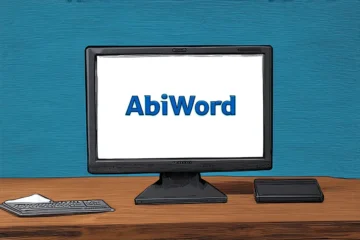In this post, let us explore the world of open source software tools for podcasting. We will explore the programs or applications that have been instrumental in my journey since gaathastory’s inception. इस ब्लॉग पोस्ट में हम पॉडकास्टिंग के लिए ओपन सोर्स टूल्स के बारे में बात करेंगे | ब्लॉग पोस्ट गाथा स्टोरी पॉडकास्ट के अनुभव से प्रेरित है। हम इसमें प्रयुक्त टूल्स की चर्चा करेंगे। हमारा उद्देश्य पॉडकास्टर्स को सही टूल्स का चयन करने में मदद करना है।
Introduction
Many Open source tools, which are freely accessible and customizable, have proven to be an invaluable assets for podcasters. Based on my experience with these tools, I have come to appreciate these tools for their versatility and collaborative nature. From recording and editing, to improving audio quality and distributing episodes, these tools have a lot to offer. So, let’s embark on this exploration together. Let us discover open source podcasting tools that facilitate impactful storytelling and engage listeners in the digital world.
Exploring open source tools for podcasting
Before we dive deeper into the world of Open source software tools for podcasting, let us re visit what the term “Open Source Software” means, and how it differs from “free” software.
1. Both free software and open source software involve sharing source code, the distinction lies in their underlying philosophies. Free software emphasizes user freedoms and ethical considerations, while open source software focuses on collaborative development and transparency.
2. Both free and open source software can carry a price tag. This is because the development and maintenance of open source software can be expensive, and sometimes developers or organizations charge for support, training, or other services related to the software. However, there are also many free and open source software projects that are completely free to use and distribute.
List of Relevant Open Source Software Tools
I had a handy list of open source tools for podcasting, which I have maintained over the years. Most of these applications are available on Linux, Mac or Windows. Some of them may also have Mobile apps for android or iOs. These range from audacity to gimp, and from ocenaudio to ffmpeg. However, my list was a tad dated -it was last updated in 2019. I Before writing this post, I wanted to know if there have been any new and noteworthy developments in this space.
My first cut list from 2019 ran as below:
| Images | gimp, Imagemagick | For cover art, episode promotions on social media |
| Audio | a. Audacity, Ocenaudio | for recording, editing, converting from one file format to another |
| b. ffmpeg | command line tool to modify audio files | |
| c. VLC Player | for listening/ proofing the audio produced | |
| Video | Kdenlive | video editing and exporting to multiple formats |
| Writing | Multiple options* |
*There are several open source writing and note taking tools I have used over the years, from office suites like Libreoffice to note taking apps to web based markdown editors.
I was positively surprised to find that the responses from the AI chat tools were similar in some ways and varied in others. Below you will find my question and the responses to the same.

Questions About audio tools for podcasters
I am looking to use open source tools for my podcasting. My preference is to use Desktop with Linux, but I am okay with Mac or Windows as long as the tools are open source. Same applies for apps- iOs or Android. With that in mind, can you suggest the options for the following:
a. Podcast ideation
b. Story or script writing
c. audio recording
d. Storage and backup
e. Podcast editing and production
f. Image/ cover art creation
In case I have forgotten any other parameter, please add that also. Thanks
You can also read 8 ways to convert audio file formats

Tools For podcasting
Podcast ideation
Brainstormr is a free online tool that helps you brainstorm ideas for your podcast. It has a variety of features to help you generate ideas, organize them, and share them with your team. (Also mentioned: MindMeister, Whiteboard Fox). Below is tool I have used previously for gaathastory, including for MyKitaab Podcast. You can use open-source project management tools that allows you to create boards, lists, and cards to organize your ideas.
- Turtl: A secure, open-source note-taking app. You can use it to brainstorm podcast ideas, jot down notes, and organize your thoughts, all while keeping your data encrypted and accessible across devices. You can create boards to categorize your thoughts and collaborate with others on your podcast concepts. Learn more about Turtl
Story or script writing
Framapad is a free online collaborative text editor that you can use to write your podcast script. This can be a helpful way to get feedback from others on your script.
Note: It is based on the open source etherpad tool. (Also mentioned: Trello, Google Docs, which is not open source). Below are tools I have used.
- LibreOffice Writer: LibreOffice Writer is a powerful open-source word processor that’s great for crafting podcast scripts and stories. It offers a comprehensive set of tools for formatting, styling, and structuring your content. With support for various file formats, you can easily export your scripts for sharing or editing elsewhere. Explore LibreOffice Writer
- Zettlr: A markdown editor designed for researchers and writers, suitable for creating podcast scripts.
Audio recording
Audacity is a free and open source audio recording and editing software. It is available for Windows, Mac, and Linux. Ocenaudio is another free and open source audio recording and editing software. It is available for Windows, Mac, and Linux. (Also Mentioned: Garageband, which is not open source)
- Audacity: A popular open-source audio recording and editing software available for Linux, Mac, and Windows. Audacity lets you capture high-quality audio recordings for your podcast episodes and provides a range of editing tools to enhance the audio quality. You can cut, copy, paste, and apply effects to your recordings, ensuring professional-sounding podcasts. Get started with Audacity
- Ardour: An open-source digital audio workstation for recording, editing, and mixing audio. From recording and editing to mixing and mastering, Ardour provides a comprehensive suite of tools. It supports multi-track recording, various audio formats, and advanced editing capabilities, making it a go-to tool for podcast creators. Explore Ardour
Storage and backup
Nextcloud is a free and open source file hosting service. You can use it to store your podcast recordings and backups. Syncthing is a free and open source file synchronization software. You can use it to sync your podcast recordings to multiple devices. For storage and backup, you can use open-source backup solutions like Bacula, which is a network backup solution that allows you to backup, restore, and verify data across a network of computers.
Podcast editing and production
Audacity can also be used for podcast editing and production. LMMS is a free and open source digital audio workstation (DAW). It is available for Windows, Mac, and Linux. Ardour is another free and open source DAW. It is available for Linux and Mac.
- Ardour: As mentioned earlier, Ardour is not just for recording but also for comprehensive audio editing and production.
- LMMS (Linux MultiMedia Studio): While primarily used for music production, it can also be handy for creating podcast intros, outros, and background music.
- Ocenaudio: Ocenaudio is a user-friendly, fast, and functional cross-platform audio editor. It’s designed for easy sound analysis and manipulation, and it also supports VST (Virtual Studio Technology) plugins for added functionality.
-
VLC Player: VLC is a versatile media player that supports a wide range of audio and video formats. It’s known for its ability to play almost any type of media file and is also useful for converting videos into different codecs or containers.
-
FFmpeg: FFmpeg is a powerful command-line tool used for handling multimedia data. It can be used to record, convert, and stream audio and video in various formats.
Image/ cover art/ video creation
GIMP is a free and open source image editing software. It is available for Windows, Mac, and Linux. Inkscape is another free and open source image editing software. It is available for Windows, Mac, and Linux. (Also mentioned: Canva, which is not open source)
- GIMP: The GNU Image Manipulation Program is a powerful open-source alternative to Photoshop, suitable for creating podcast cover art. It’s perfect for creating eye-catching podcast cover art. With a wide range of tools for image manipulation, drawing, and design, GIMP lets you craft visually appealing artwork to accompany your podcast episodes. Get started with GIMP
- ImageMagick: This is a software suite to create, edit, and compose bitmap images. It can read, convert and write images in a variety of formats. ImageMagick is used to translate, flip, mirror, rotate, scale, shear and transform images, adjust image colors, apply various special effects, or draw text, lines, polygons, ellipses and Bézier curves.
- Kdenlive: Kdenlive is a free and open-source video editing software. It’s known for its user-friendly interface and powerful features, which include support for a wide range of audio and video formats, multi-track editing, and a variety of transitions and effects.
Podcast Distribution
To distribute your podcast using open-source tools, you can use a podcast hosting platform that supports open-source software. One such platform is Podsheets, which allows you to publish and monetize your podcast using open-source tools. You can publish your podcast in all of the different players and directories, including Apple Podcasts, Google Podcasts, and Spotify.
Podcast Hosting: For hosting your podcast episodes, in addition to your regular podcast host, you can consider platforms like Archive.org for free hosting,
Here are some other tasks you may need to consider for your podcast
Promotions – This includes creating social media posts, submitting your podcast to directories, and reaching out to potential listeners.
Monetization – This includes finding ways to make money from your podcast, such as through advertising, sponsorships, or donations.
Transcription – This is the process of converting your audio recordings into text. This can be helpful for people who are deaf or hard of hearing, or for people who want to read your podcast instead of listening to it.
Analytics – This is the process of tracking the performance of your podcast, such as how many people are listening to it and where they are listening from. This information can help you improve your podcast and reach more listeners. You can use open source matomo for analytics.
The rise of open source generative AI tools and Podcasting
This is expected to have a significant impact on podcast production. These tools, which use algorithms and machine learning to create content, have the potential to streamline and enhance various aspects of podcast production, from imaging to audio editing to video creation.
Images: e.g. Stable Diffusion One. A specific example of how open source generative AI tools can impact podcast production is in the creation of imaging. With the help of AI, podcasters can easily generate high-quality images to use as cover art or promotional material. This eliminates the need for hiring a graphic designer or spending hours creating images manually, saving time and resources.
Audio editing: The generative AI tools can assist in tasks such as noise reduction, audio enhancement, and even transcription. This can greatly improve the overall sound quality of a podcast, making it more engaging and professional.
Video Creation: Open source generative AI tools can also be utilized in video creation for podcasts. These tools can automatically generate visuals and animations to accompany audio, making the production process more efficient and visually appealing.
Overall, the rise of open source generative AI tools has the potential to revolutionize podcast production, making it more accessible and efficient for creators. It will also allow for more creativity and innovation in terms of content creation, ultimately benefiting both podcasters and listeners.

Software Tools for Podcasting.
Conclusion
Open source tools have become essential in the modern era of connectivity and communication. Our journey through podcasting, guided by these tools, has highlighted the strength of collaboration, innovation, and community-driven development. From the inception of gaathastory to the present, these tools have not only streamlined podcast production but also fostered meaningful exchanges of ideas and stories.
As we conclude this exploration, it’s important to recognize that creativity flourishes when fueled by collective expertise. Open source tools epitomize this concept, ensuring that creative barriers are minimized. As you venture into your podcasting endeavors, these open source software tools for podcasting will serve as reliable companions, aiding you in navigating the ever-evolving landscape of innovation and inspiration. Keep podcasting, keep creating, and continue to harness the potential of open source tools to amplify your message in the digital sphere.
Resources:
https://opensource.com/article/17/8/podcasting-how-get-started
https://restream.io/blog/best-podcast-recording-and-editing-software/
The Blog post “Open source software tools for podcasting” was published under the category Linux and Open Source” For other posts in this category, please click here.




